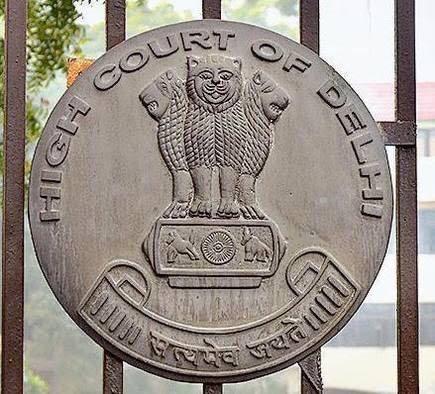The Delhi High Court has directed the Centre to frame policy with regards to distribution and allocation of Liposomal Amphotericin B, patientwise, for treatment of Black Fungus.
The Bench of Justices Vipin Sanghi and Jasmeet Singh yesterday directed both the Centre and the ICMR to place status reports before the Court on Friday.
The court, hearing COVID-related matters, observed that the focus has now shifted from shortage of oxygen to shortage of Liposomal Amphotericin B and other alternative drugs for the treatment of Mucormycosis (Black Fungus).
The Bench observed with worry that the Centre, in its status report, had made it clear that it cannot procure the expected 2.3 lakh vials of the aforesaid medicine from the sources, from where it was expected.
Senior Advocate Rahul Mehra, Counsel for GNCTD, referred to his report, which indicated that as of Tuesday, there were 792 active cases of Black Fungusi, out of which 191 were in central government hospitals in Delhi.
The breakup of cases in hospitals of GNCTD was 209 and in private hospitals in Delhi, 392. The allocation of drugs for Central government hospitals is made by the Union of India separately.
So far as the GNCTD is concerned, it has made allocation for state government hospitals and private hospitals and as of June, there were 601 Black Fungus cases in total.
The GNCTD also disclosed the allocation of Liposomal Amphotericin B made by the UoI for the 601 patients. It said 1230 have been distributed. The GNCTD has made an order on pro-rata basis. A distribution factor is applied and it seems per patient two vials are being made available. The said allocation is made by the GNCTD, hospital-wise, and it is left to the doctors from these hospitals to administer them to the patients at their own their discretion.
During the proceedings, the Bench took note of Dr UV Das, DGHS, who informed that Liposomal Amphotericin B is a primary drug of choice to treat Black Fungus and recommended dose is 5 mg per kg. Therefore for a person weighing 60 kg, the patient would require about 300 mg per day, which translates to 6 vials of 50mg each. The number of vials is dependent on body weight. He also stated that there is an alternate medicine namely Amphotericin B (plain), which was used to treat Kala Azar for a couple of decades. However, the same has adverse effects on the kidney. He also named one other alternative drug – Posaconazole.
Senior Advocate Krishnan Venugopal, however, submitted that as per his information, there are limitations and other adverse effects of using Posaconazole and Amphotericin B (plain).
The Bench observed that these questions pertaining to Black Fungus medicine, administration, procurement and allotment can only be answered by medical experts. Thus, the Bench directed the ICMR to answer the following:
- Whether it is medically prudent to administer a patient suffering from Black Fungus 2 vials of the said medicine on a daily basis if the advised dosage is 6 vials per day. i.e. 300 mg per day
- If a patient is allocated 2 vials per day and is on the verge of dying, what are the other medications which could be administered to control problem and cure it?
- Whether it would be medically prudent to identify patients who should be given a full dose of main drug so that their lives could be saved even if it is at the expenses of not giving to other patient who may/ may not need the same.
The bench further stated that, “It’s high time that ICMR which is statutory body of GOI to lay down policy and guidelines with regard to treatment of patient comes out with a clear guideline on the use of Liposomal Amphotericin B, Amphotericin B(plain), Posaconazole etc. for treatment of black fungus.”
The Bench also took account of the data placed before it and observed that, “there is a shortage of 66% as presently required. The number of active cases of black fungus is at 792 and an increase of 39 cases in last 24 hours. From the status report it appears the UOI has been making effort to procure the same by getting in touch with the primary manufacturers of said drug through Galliard(Dubai) and Millen (subsidiary of Galliard).”
The Bench further observed that there is issue regarding shortage of raw material and efforts are being made to arrange the same. However the requirement of the drug is far in access of its availability.
Justice Sanghi stated that patients who have better chances of survival have to be prioritised, when it comes to administering the drug.
“Similarly patient who are younger and who hold promise to our nation we have to prioritize in comparison with older generation which has lived its life and from whom people are not dependent financially… In times like these difficult choices are to be made by the state.”
Also read: HC decision granting pre-arrest bail to journo in a rape case challenged before SC
The Bench then added, “We may also observe that there may be category of person who are serving the nation in high position and safety and security may be necessary in view of the pivotal role that they play in the administration of the country by formulating its policy may carve out such exceptional cases for good reasons.”
Source: ILNS


